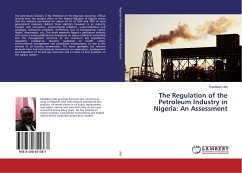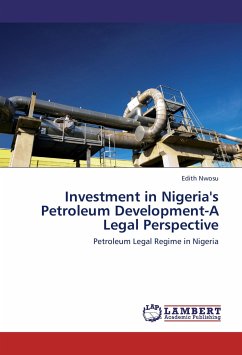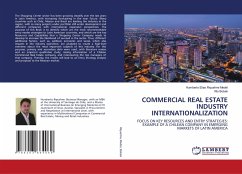The petroleum industry is the lifeblood of the Nigerian economy, official records from the budget office of the Federal Republic of Nigeria shows that the industry accounted for about 29.1% of GDP and 78% of total government revenues. Behind these statistics however, is an industry fraught with corruption, environmental pollution, under-utilization and wastages, manpower problems, inefficiency, lack of transparency, capital flights, divestments, etc. This book examines Nigeriäs petroleum industry and covers a multi-jurisdictional comparison on issues relating to ownership and the management structure of the industry¿s key ingredients, regulatory compliance, taxation, guidelines on health, safety, environmental management and sustainable development, as well as the interest of oil bearing communities. The book spotlights the relevant domestic laws and international conventions on exploration, development and disposition of oil and gas resources and a review of best practices on the subject matter.
Hinweis: Dieser Artikel kann nur an eine deutsche Lieferadresse ausgeliefert werden.
Hinweis: Dieser Artikel kann nur an eine deutsche Lieferadresse ausgeliefert werden.








